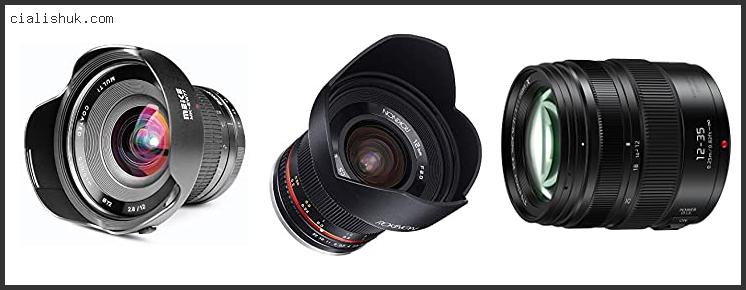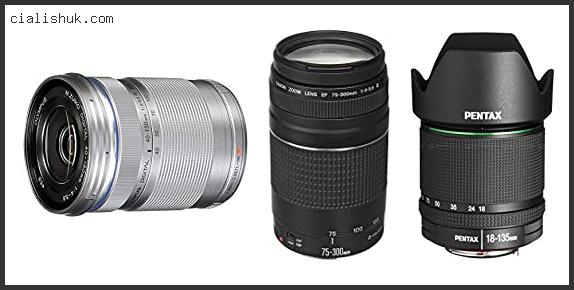Are you a photography enthusiast? If so, you know that having the right camera lens is essential for capturing great shots. But with so many different camera lenses on the market, it can be tough to know which one is right for you.
In this blog post, we’ll take a look at some of the different types of camera lenses and help you choose the best one for your needs. Whether you’re just getting started in photography or you’re a seasoned pro, we’ve got the perfect camera lens for you.
What to consider when choosing a camera lens.
4-Pack Camera Lens Protector for iPhone 16e, 9H Tempered Glass Camera Cover Screen Protector Accessories, HD Clarity, Anti-scratch, Bubble Free, Case Friendly, Shockproof Full Protective
- 📌[Maximum protection] – Being a mere 0.33mm thick,Guaranteed hardness complying with standard 9H +, Provide superior impact protection, scratch protection & shatterproof and protection from high-impact drops.maintain your Device’s original high-definition retina viewing experience and high-sensitivity touch response.
- 📌[Shatterproof Design] – It is resistant to shattering or splintering. In case of tempered screen damage, the little pieces are stuck and kept together for safe deal with.
- 📌[99.99% HD & Sensitive touch] – It is made with 0.33mm ultra-thin tempered glass which the transmittance can reach more than 99%. Ultra-thin and ultra-clear material makes it retain amazing clarity for viewing experience and super sensitive touch.
- 📌[Bubble free & Anti-fingerprint] – The tempered glass screen protector with auto-adsorption technology can self-expel any air bubbles. The surface of the protective film is treated with a plasma oleophobic coating, which is very smooth, effectively prevent fingerprints from sweat and grease.
- 📌[Professional Support] – The product includes 4 Camera Lens Protectors, 4 cleaning kits. If you receive wrong product, broken or installation problem etc. Please feel free to contact us. We offer you brand new screen protector.
JINTU 420-800mm f/ 8.3 Manual Telephoto Zoom Lens + T-Mount for Canon EOS Rebel SL2 SL1 T3 T3i T4i T5 T5i T6 T6i T6s T7 T7i 4000D 6D 7D 60D 70D 77D 80D 5D II/III/IV 550D 650D SLR Camera Lenses
- ★ JINTU 420-800mm MF Super HD Telephoto lens, Solid Construction with full metal body, Small size 10.6 x 3.5 x 3.5 inch, lightweight 700g=1.8LB, easy to carry to anywhere.
- ★ Ultra high definition image quality from Japan, Multi coated low-dispersion glass. Free canon adapter supply. If your camera is Nikon, Pentax, Sony e mount cameras or other brand which can buy it from our store.
- ★ Compatible with Canon EOS Rebel T1i, T2i, T3, T3i, T4i, T5, T5i, T6, T7, T6i, T6s, T7i, SL1, SL2, 60D, 70D, 77D, 80D, 50D, 40D, 30D, 5D, 1D, 5D III, 5D IV, 5Ds, 6D, 7D, 7D Mark II etc SLR Digital Cameras.
- ★ Perfect for boyfriend or husband birthday gifts or photographyer. Best choice for small or distant subjects, ranging from birds and wildlife, through sports, to moon etc.
- ★ NOTE: This is a manual lens, NO auto focus, your camera will show “lens not attach”, but not defect. pls switch to MF MODE in order to use this lens.
58mm Universal Snap-On Lens Cap For Canon Digital EOS Rebel SL1, T1i, T2i, T3, T3i, T4i, T5, T5i EOS60D, EOS70D, 50D, 40D, 30D, EOS 5D, EOS5D Mark III, EOS6D, EOS7D, EOS7D Mark II, EOS-M Digital SLR Cameras Which Has Any Of These Canon Lenses 18-55mm IS II, 55-250mm, 55-250mm, 18-250mm, 18-250mm, 50mm 1.4 , 55-200mm. 70-300mm, 75-300mm, 100-300mm, EF 24mm f/2.8, 28mm f/1.8, 50mm f/1.4, 85mm f/1.8, EF 100mm f/2.8
- 58mm Lens Cap fits many cameras: Nikon, Canon, Olympus, Sigma, Vivitar, and others!
- Protect your valuable lenses from scratches and dirt
- Very handy item to keep in your gear bag – always have a spare!
- This Kit includes: Lens Cap+ Cap Keeper+ Microfiber Cleaning Cloth
There are a few things to consider when choosing a camera lens. The most important factor is the size of the sensor in your camera.
The sensor size will dictate the minimum and maximum focal length of the lenses that are compatible with your camera. The next factor to consider is what you want to use the lens for.
If you are shooting landscape photography, you will want a wide-angle lens. If you are shooting portraits, you will want a lens with a longer focal length. The last factor to consider is the aperture. The aperture is the opening in the lens that allows light to pass through. A wider aperture will allow more light to pass through, which is great for low-light situations. A narrower aperture will give you a sharper image.
How the different types of camera lenses can benefit you.
There are many different types of camera lenses available on the market, and each one has its own unique benefits. If you’re a photographer, it’s important to know which type of lens is right for you and your specific needs.
Here’s a look at the different types of camera lenses and how they can benefit you:
Standard lenses: Standard lenses are ideal for general photography, and they offer a wide range of focal lengths. This makes them perfect for capturing everything from landscapes to close-up shots.
Wide-angle lenses: Wide-angle lenses are great for landscape photography and for capturing large groups of people. They provide a wider field of view than standard lenses, making them perfect for capturing sweeping vistas and expansive scenes.
Telephoto lenses: Telephoto lenses are ideal for wildlife and sports photography, as they allow you to zoom in on your subject without getting too close. They also offer a shallow depth of field, which can be great for creating dramatic portraits.
Macro lenses: Macro lenses are designed for close-up photography, and they allow you to capture incredibly detailed shots. They’re perfect for capturing close-ups of nature, close-ups of people, and for product photography.
There are many different types of camera lenses available on the market, and each one has its own unique benefits. If you’re a photographer, it’s important to know which type of lens is right for you and your specific needs. Here’s a look at the different types of camera lenses and how they can benefit you:
Standard lenses: Standard lenses are ideal for general photography, and they offer a wide range of focal lengths. This makes them perfect for capturing everything from landscapes to close-up shots.
Wide-angle lenses: Wide-angle lenses are great for landscape photography and for capturing large groups of people. They provide a wider field of view than standard lenses, making them perfect for capturing sweeping vistas and expansive scenes.
Telephoto lenses: Telephoto lenses are ideal for wildlife and sports photography, as they allow you to zoom in on your subject without getting too close. They also offer a shallow depth of field, which can be great for creating dramatic portraits.
Macro lenses: Macro lenses are designed for close-up photography, and they allow you to capture incredibly detailed shots. They’re perfect for capturing close-ups of nature, close-ups of people, and for product photography.
The pros and cons of using different camera lenses.
Different camera lenses offer different advantages and disadvantages, depending on the type of photography you’re doing. Here’s a quick rundown of some of the most popular types of camera lenses, and what they’re best suited for:
– Prime lenses are fast, sharp, and offer great low-light performance.
However, they’re typically more expensive than zoom lenses, and you’ll need to carry a few differentprime lenses to cover all your bases.
– Zoom lenses are more versatile, since you can adjust the focal length to get the framing you want.
They’re also generally more affordable than prime lenses. However, zoom lenses can be slower and less sharp, and they’re not as good in low light.
– Wide-angle lenses are great for landscape and architectural photography, as they allow you to capture a lot of scene in a single frame. However, they can distort faces and other close-up subjects, so they’re not ideal for portraiture.
– Telephoto lenses are perfect for sports and wildlife photography, as they let you zoom in on distant subjects. However, they’re larger and heavier than other types of lenses, and they can be more expensive.
Conclusion
When choosing a camera lens, there are many factors to consider, such as the type of lens, the benefits it offers, and the potential drawbacks. Ultimately, the best camera lens for you is the one that best suits your needs and preferences.




![CloudValley for iPhone 16 /iPhone 16 Plus Camera Lens Protector, [AR+AF 98% Transmittance] [Full Coverage] Ultra-HD Tempered Glass Cover, Metal Lens Screen Protective,White](https://m.media-amazon.com/images/I/41Pgzf9npoL._SL160_.jpg)





